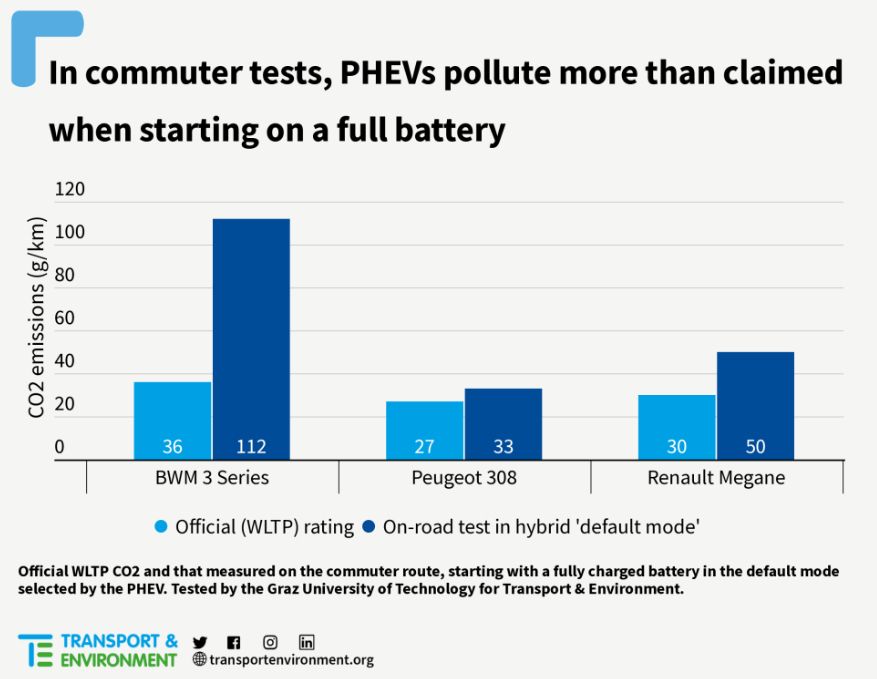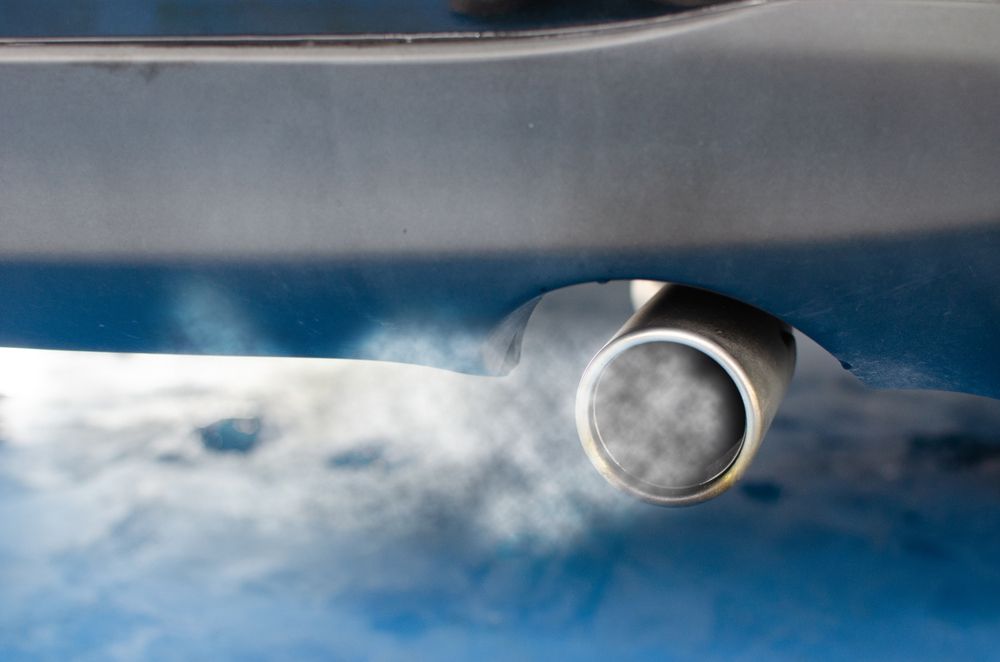Plug-in hybrid vehicles pollute more than claimed on city and commuter routes, according to research by Transport & Environment (T&E).
The study by the European NGO tested three recent PHEV models – a BMW 3 Series, Peugeot 308 and Renault Megane – emitted more CO2 than advertised when tested on the road even when starting with a full battery.
According to tests run by Graz University of Technology, the BMW polluted three times its official rating when driven on a typical commuter route. The Peugeot 308 and Renault Megane plug-in hybrids polluted 20% and 70% more than claimed respectively – despite the relatively short 55km trip.
On city routes, the Peugeot had 53% the advertised electric range on a single charge and the BMW had 74%. Only the Renault had the electric range claimed.

BMW has introduced new geo-fencing technology that automatically switches the PHEV to zero-emission electric driving in cities – but when tested in Graz, the BMW 3 Series switched on the engine twice. T&E said geo-fencing technology does not guarantee zero-emissions driving in cities and “risks increasing CO2 emissions outside such zones”.
As a result of the findings, T&E has called on governments to end subsidies for PHEV fleet vehicles and tax them based on their pollution “in the real world”.
Anna Krajinska, vehicle emissions manager at T&E, said: “Plug-in hybrids are sold as the perfect combination of a battery for all your local needs and an engine for long distances. But real-world testing shows this is a myth. In city tests, just one of the PHEVs has the electric range advertised, while all three emit more than claimed in commuter driving. Lawmakers should treat PHEVs based on their actual emissions.”
“PHEVs should not be treated as zero emission even if they have geo-fencing capability. Private car and company car taxes for PHEVs should be based on the actual CO2 reduction delivered. Governments should end all purchase subsidies for PHEVs in fleets and instead encourage companies to use battery electric cars which are truly zero emissions.”
Image courtesy of Shutterstock












